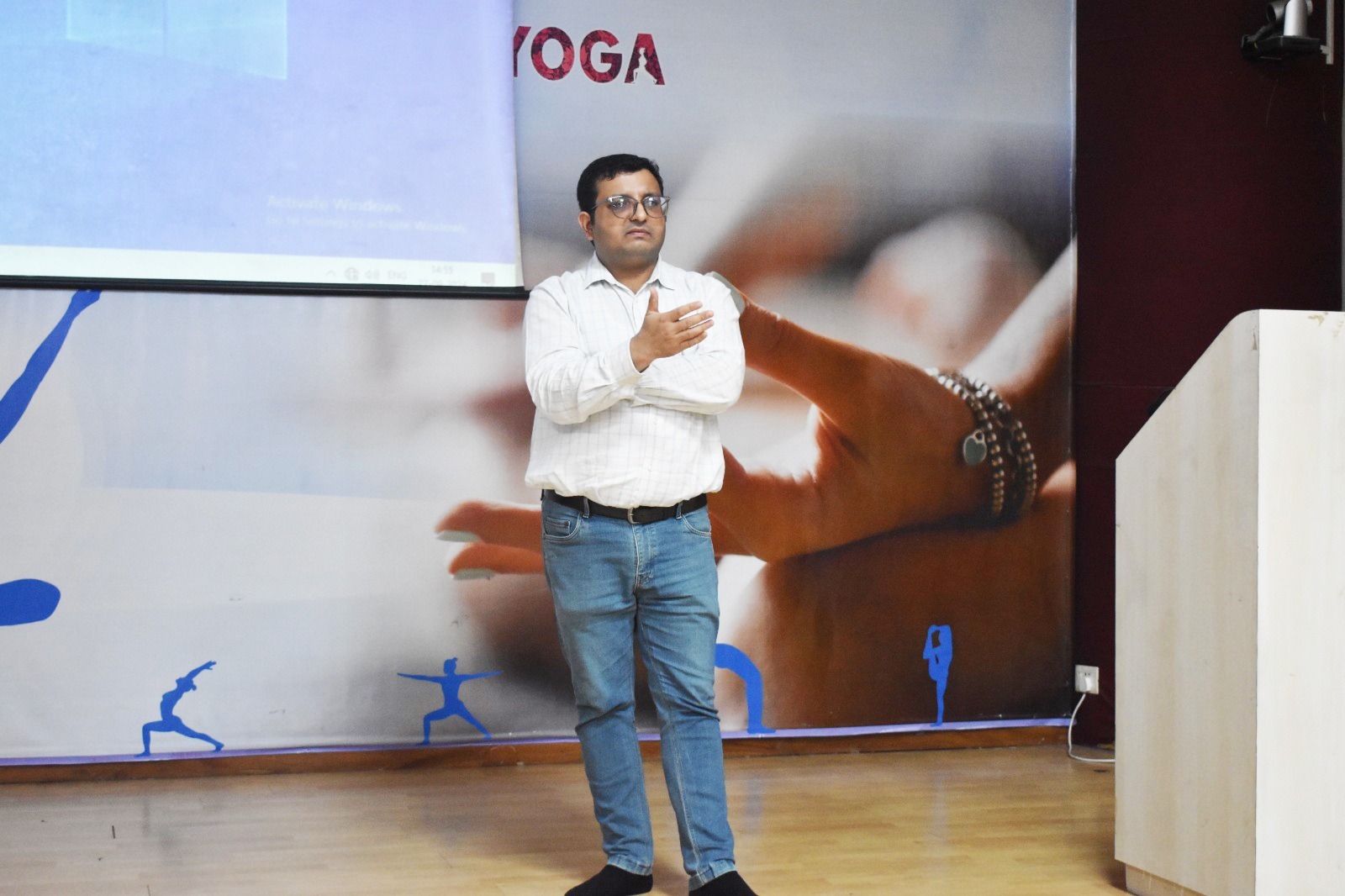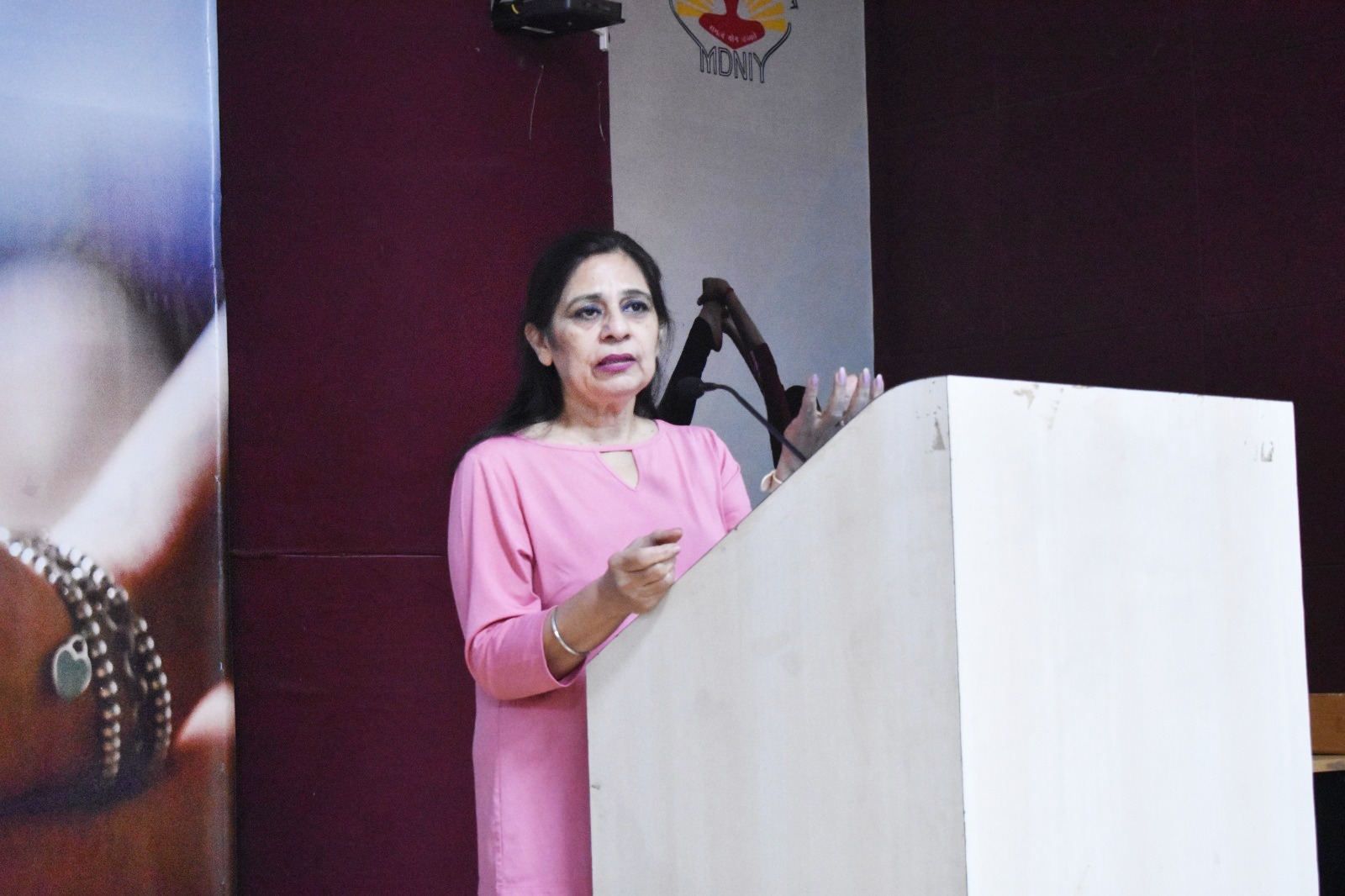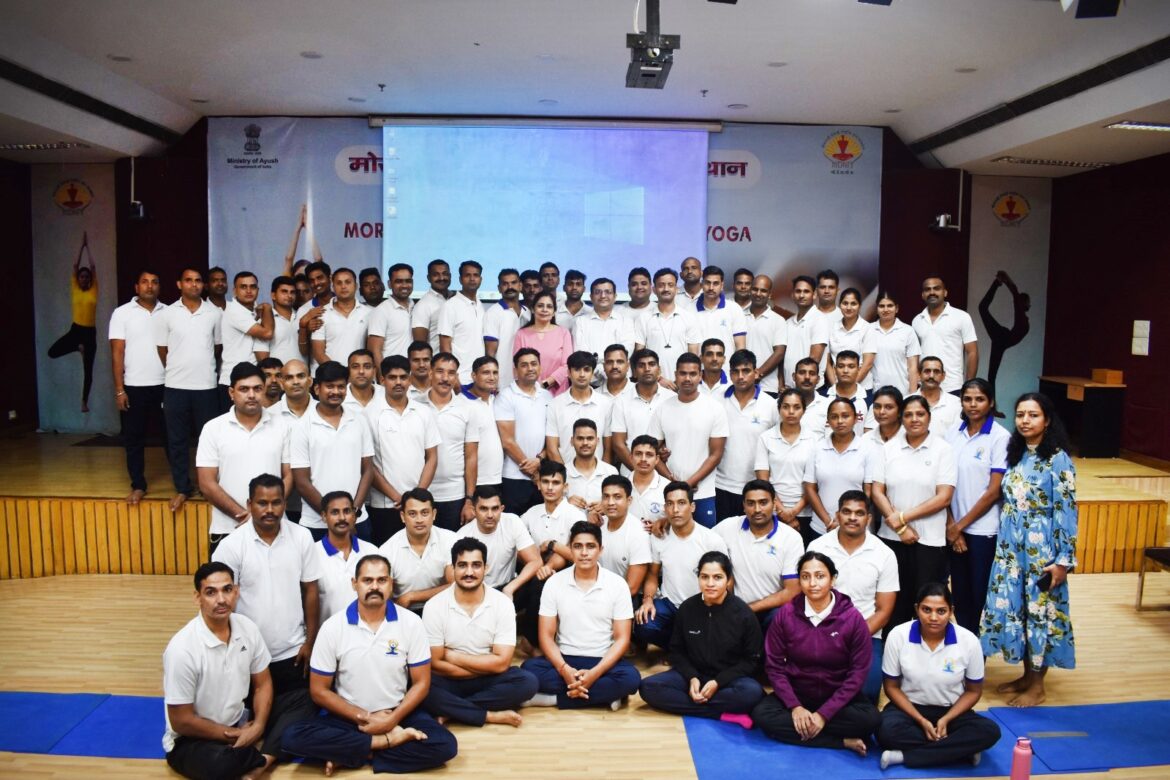In observance of Poshan Maah, celebrated annually in September to promote nutritional awareness, MDNIY organised an informative lecture titled “Anaemia: Its Consequences and Preventive Management,” delivered by Dr. Rakshit Garg, Senior Medical Officer at LNJP Hospital. The session was aimed at paramilitary personnel enrolled in the Certificate Course for Yoga Wellness Instructors.
Dr. Garg emphasised the urgent need to raise awareness about the widespread nutritional deficiency of iron, which particularly affects vulnerable groups, and provided valuable insights into its prevention. He highlighted that anaemia affects more than half of the female population and nearly a quarter of men in India. Particularly alarming is its impact on adolescent girls and pregnant women, with approximately 60% of these groups suffering from low haemoglobin levels. Additionally, 25% of children under the age of five face developmental risks due to this condition.

Dr. Garg stressed the significant contribution of anaemia to India’s maternal mortality rate, which stands at 69.2% at the time of pregnancy. He called for urgent attention to be given to preventive measures such as behavioural interventions, improved nutritional education, and enhanced access to iron-rich foods, across nation. He recommended early diagnosis methods, including visual assessments of skin tone, eye colour, and tongue, especially in women.
Despite the traditionally non-vegetarian diets of regions such as Jammu and Kashmir, anaemia continues to persist, illustrating the complexity of the issue. Dr. Garg identified symptoms like fatigue, weakness, body aches, reduced productivity, and cognitive impairment as key indicators of the condition. In children, these symptoms manifest in poor growth, irritability, and poor academic performance, while women often remain unaware of the severity of their symptoms, further exacerbating their health conditions.
The lecture also touched upon social factors that contribute to poor dietary habits, particularly among women and children. Dr. Garg passionately advocated for eliminating gender-based nutritional disparities, stressing the importance of a healthy, iron-rich diet for women, who are vital to the health of future generations. He emphasised that dietary improvements, iron supplementation, and proper birth spacing are essential strategies in combatting anaemia.

Ms. Manjot Kaur, Dietician at MDNIY and the session’s coordinator, addressed the importance of self-care among women, urging them to prioritize their own nutritional needs alongside those of their families. She highlighted the necessity of a balanced diet rich in iron and encouraged the consumption of Vitamin C alongside iron-rich foods to enhance iron absorption.
The session concluded with a shared commitment to raising awareness, fostering behavioural change, and improving nutrition across India. As Poshan Maah continues to amplify the significance of nutrition, this dialogue serves as a crucial reminder of the role that diet and public health interventions play in safeguarding the health of women and children nationwide.






